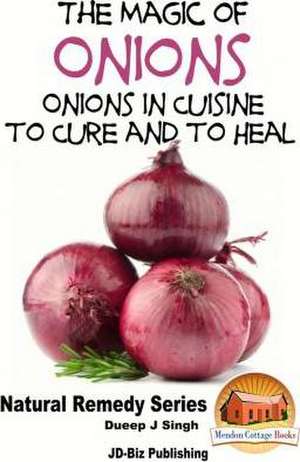The Magic of Onions - Onions in Cuisine to Cure and to Heal
Autor Dueep Jyot Singh, John Davidson Editat de Mendon Cottage Booksen Limba Engleză Paperback
Preț: 82.56 lei
Nou
Puncte Express: 124
Preț estimativ în valută:
15.81€ • 16.26$ • 13.32£
15.81€ • 16.26$ • 13.32£
Carte disponibilă
Livrare economică 08-22 februarie
Preluare comenzi: 021 569.72.76
Specificații
ISBN-13: 9781517789442
ISBN-10: 1517789443
Pagini: 60
Dimensiuni: 152 x 229 x 4 mm
Greutate: 0.12 kg
Editura: CreateSpace Independent Publishing Platform
ISBN-10: 1517789443
Pagini: 60
Dimensiuni: 152 x 229 x 4 mm
Greutate: 0.12 kg
Editura: CreateSpace Independent Publishing Platform
